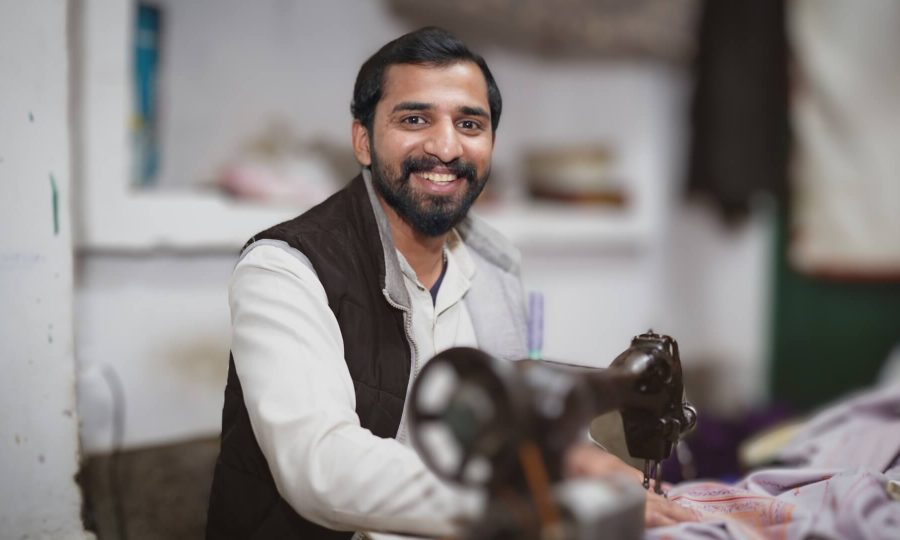In a time when global inequality continues to grow and financial systems often leave the poor behind, the Akhuwat Foundation has become a symbol of ethical finance, compassion, and sustainable development. Through its commitment to interest-free microfinance, Akhuwat is reshaping how poverty can be tackled—one family, one loan, and one community at a time.
A Unique Beginning Rooted in Compassion
The foundation was established in 2001 by Dr. Amjad Saqib, a former civil servant who left a prestigious position in the government to pursue a higher cause. Motivated by Islamic principles, particularly the concept of Qarz-e-Hasna (benevolent interest-free loans), he believed that those in need deserve assistance without being subjected to exploitation.
Dr. Saqib gave a loan of Rs. 10,000 to a widow, not as charity, but as a gesture of trust and empowerment. That simple act of faith marked the beginning of what is now the world’s largest interest-free microfinance organization.
What Sets Akhuwat Apart?
Akhuwat’s model is built on the philosophy of brotherhood (Akhuwat), meaning that those who have more should support those who have less. Unlike traditional microfinance that charges interest and can often leave borrowers worse off, Akhuwat believes:
- Money should not be made from the misfortunes of the poor.
- Every person has the potential to change their future if given the right opportunity.
Here’s how Akhuwat’s model works:
- Zero interest, zero service charges
- Loans are distributed in mosques, churches, and community centers
- Loan sizes vary, from a few thousand rupees to hundreds of thousands
- Repayment plans are flexible
- Community volunteers monitor and mentor borrowers
The result? A repayment rate of over 99%, proving that when people are treated with respect and dignity, they respond with responsibility.
Social Uplift Through Comprehensive Programs
Beyond microfinance, Akhuwat believes that poverty is not only about lack of money—but also about lack of opportunity. That’s why they run several transformational initiatives:
1. Education for All
Akhuwat is committed to providing tuition-free education at all levels:
- Schools across Pakistan offering quality education to underserved children.
- Akhuwat College in Kasur — a residential program for boys and girls from poor families.
- Akhuwat University — Pakistan’s first tuition-free university, making higher education accessible to all, not just the wealthy.
2. Healthcare Initiatives
Akhuwat operates health clinics and mobile medical units, especially in areas with limited healthcare access. They also run awareness campaigns around preventive care, hygiene, and family health.
3. Transgender Support Program
Akhuwat is one of the first Pakistani organizations to actively support the transgender community, providing vocational training, employment support, and interest-free loans to help them integrate into society.
4. Akhuwat Clothes Bank
This unique project encourages people to donate gently used clothes, which are then cleaned, repaired, and distributed to the poor with dignity. It’s not just about charity—it’s about restoring confidence and self-respect.
5. Housing for the Marginalized
Through the Akhuwat Low-Cost Housing Project, deserving families receive interest-free loans to construct or renovate their homes. For many, it’s the first time they’ve ever had a safe and secure roof over their heads.
National Reach, Global Praise
Akhuwat has disbursed more than Rs. 170 billion in interest-free loans, benefitting over 5 million families. Its work extends across all provinces of Pakistan, including remote and underdeveloped areas.
International organizations like the United Nations, World Bank, and Harvard University have praised Akhuwat’s model. In 2021, Dr. Amjad Saqib received the Ramon Magsaysay Award—Asia’s highest honor for public service and leadership.
Sustainability Through Community Giving
What makes Akhuwat sustainable is its community-powered model:
- Wealthier individuals donate regularly.
- Former loan recipients often return as donors or volunteers.
- Operational costs are minimized by utilizing community spaces and engaging volunteers.
- The organization runs with high levels of transparency and accountability.
This creates a cycle of empowerment, not dependency.
A Model for the Muslim World—and Beyond
While Akhuwat is rooted in Islamic values, its model is universal in its appeal. Countries across Asia, Africa, and even Latin America are studying how to adapt it. It’s a model that blends faith, social justice, and economic logic—a rare combination in today’s financial landscape.
Conclusion: Compassion as Currency
The Akhuwat Foundation shows us that finance doesn’t have to be predatory, and development doesn’t have to be impersonal. Through a model based on faith, trust, and human dignity, Akhuwat is lifting millions out of poverty—and, more importantly, helping them stand tall on their own feet.
In a world where financial exclusion remains a massive barrier, Akhuwat reminds us that the best solutions often come from the heart.


